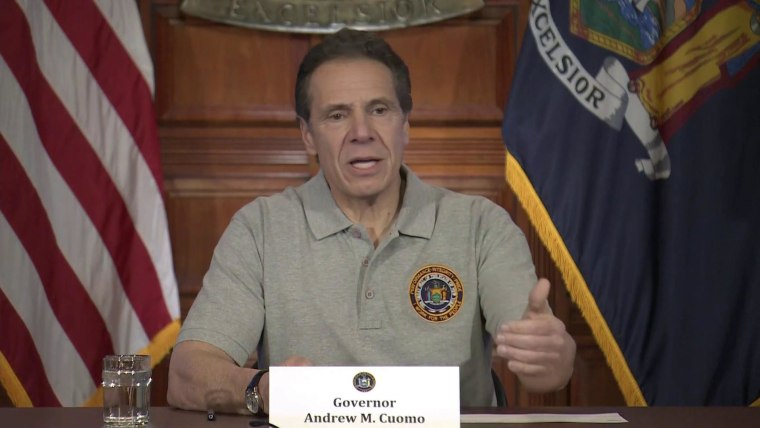The Food and Drug Administration will allow doctors across the country to begin using plasma donated by coronavirus survivors to treat patients who are critically ill with the virus, under new emergency protocols approved Tuesday.
The FDA’s decision comes a day after New York Gov. Andrew Cuomo announced that the state’s health department planned to begin treating the sickest coronavirus patients with antibody-rich plasma extracted from the blood of those who’ve recovered.
The treatment, known as convalescent plasma, dates back centuries and was used during the flu pandemic of 1918, in an era before modern vaccines and antiviral drugs. Some experts have argued that it might be the best hope for combating the coronavirus until more sophisticated therapies can be developed, which could take several months.
“The approach definitely has merit, and what’s remarkable about it is it’s not a new idea; it’s been with us for a good hundred years or longer,” said Dr. Jeffrey Henderson, an associate professor of medicine and molecular microbiology at the Washington University School of Medicine in St. Louis. “I think we don’t know until we have experience and case reports with this particular disease whether it will be effective, but just based on its track record with a number of other viruses, I think it has a very good chance of working.”
Let our news meet your inbox. The news and stories that matters, delivered weekday mornings.
Henderson is part of a nationwide network of doctors and researchers, led by a team at Johns Hopkins University in Baltimore, who have been working to establish protocols for use of plasma to treat those suffering from COVID-19, the disease caused by the coronavirus.
Full coverage of the coronavirus outbreak
The method — essentially harvesting virus-fighting antibodies from the blood of previously infected patients — was associated with milder symptoms and shorter hospital stays for some patients during the 2002 SARS outbreak. And initial reports from China suggest convalescent plasma might also be effective in dulling the effects of COVID-19.
Under the emergency protocols approved by the FDA, doctors can request permission to treat critically ill COVID-19 patients on a case-by-case basis. For now, the experimental treatment will be reserved for patients who are in dire condition and at risk of death. The FDA will respond to most requests within four to eight hours, the agency said. For patients who require treatment faster, doctors can call the FDA’s Office of Emergency Operations to get approval over the phone.
If the treatment is proven safe and effective, experts said it would likely work best if given to patients before symptoms become too severe. And past studies indicate that proactive infusions of convalescent plasma might also be effective in protecting frontline health care workers from becoming seriously ill.
The FDA cautioned that plasma has not been proven effective for COVID-19 and that researchers wishing to test it more broadly should apply for permission to begin a trial.
Download the NBC News app for full coverage of the coronavirus outbreak
“Although promising, convalescent plasma has not been shown to be effective in every disease studied,” the FDA announcement said. “It is therefore important to determine through clinical trials, before routinely administering convalescent plasma to patients with COVID-19, that it is safe and effective to do so.”
Experts said widespread use of convalescent plasma, if approved in the coming weeks, would require significant coordination between hospitals and the nation’s blood banks.
In New York, health officials said they plan to begin recruiting patients this week who have fully recovered from COVID-19. That effort, officials said, would likely start in New Rochelle, the New York City suburb that was the center of the state’s initial outbreak a few weeks ago, because of the concentration of people there who have already recovered.
“It’s only a trial,” Cuomo said Monday. “It’s a trial for people who are in serious condition, but the New York state Department of Health has been working on this with some of New York’s best health care agencies, and we think it shows promise, and we’re going to be starting that this week.”













